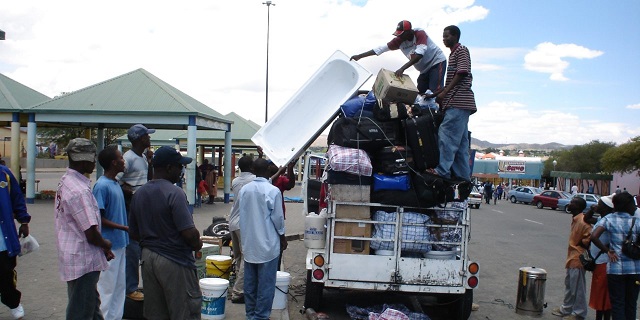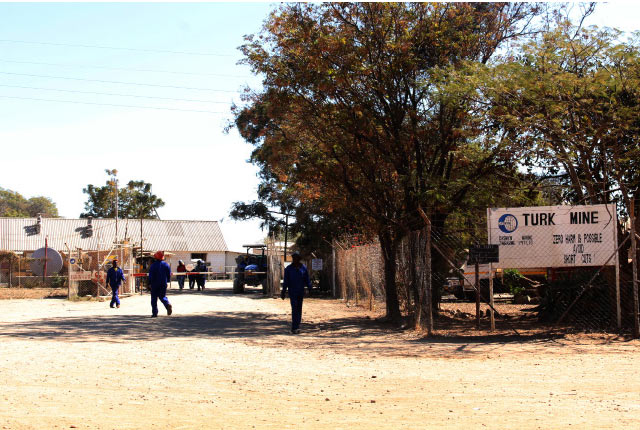Harmonise Sadc protocols to protect cross-border traders

Prosper Ndlovu
DESPITE contributing an estimated $17.6 billion worth of trade annually within Southern Africa, informal cross border traders (ICBTs) continue to be legally and institutionally side-lined in the region.
Several research findings confirm that informal cross border trading is on the rise in the whole of Africa and Sadc in particular, as multitudes seek to cushion themselves against adverse economic shocks. The Open Society Initiative for Southern Africa (OSISA) notes that the informal economy, has been the mainstay of countless people’s lives in developing nations, especially Sadc and that the failure by governments in the region to create jobs, has enhanced the growth of informal cross border trading.
The situation is compounded by shrinking formal sector and de-industrialisation being experienced in some regional states. Over the years this has seen ballooning ICBTs, who are believed to account for 30-40 percent intra-regional trade in Sadc alone, according to the United Nations.
“ICBTs contribute significantly to regional economic growth and trade — defying all the barriers and negative conditions, generating nearly $17.6 billion trade per year, according to a USAid study, 2016),” says Gracious Mavisa, a researcher with the Institute of Development Studies at the National University of Science and Technology (Nust).
“ICBTs in Africa and Sadc are highly feminised with women as major players. In Zimbabwe 68 percent of ICBTs are women.”
Yet the informal continues to face cumbersome operations in its quest to eke a living, with perennial concerns over lack of access to funding, alleged harassment by authorities, rigid tax and border control regulations, which do not only restrict movement by expose the vulnerable traders to numerous risks.
A Sadc Informal Cross Border Traders Conference held in the second largest city of Bulawayo, Zimbabwe, recently saw hordes of ICBTs representatives and civic society groups pour out their distress over failure by authorities to address their plight and unlock economic potential from their operations.
Participants at the event, who were drawn from different regional Sadc member states, said their immense contributions to regional trade were not recognised as their interests were ignored in policy making processes. While regional governments are keen to eliminate illicit trade and foster socio-economic and political integration as a way of achieving sustainable development, cross border traders say the Sadc Protocol on Trade, for instance, is silent and not clearly expressed in terms of their operations.
“Policies in the region are quiet about our work and ICBTs suffer invisibility at policy and institutional level. Yet we are important players in alleviating poverty,” said one participant.
These sentiments were echoed by Advocate Nikiwe Ncube-Tshabalala from Webb, Low and Barry Legal Practitioners, who said ICBTs’ rights were being violated with impunity due to legal and institutional gaps pertaining to their work.
“There is no particular law in Zimbabwe and Sadc that applies to informal cross border traders. You are not recognised as an entity. Your efforts are not recognised in legal circles yet ICBTs to me are heroes of our time who have defied economic challenges to sustain livelihoods,” she said.
Adv Ncube-Tshabalala said ICBTs were not clearly defined in constitutions and that their rights were merely generalised and inferred without any particularisation to what the operators do. She also said the Sadc Protocol on Trade, while expressly promoting free trade, tariff reduction and liberalisation of markets, does not provide direct rights to ICBTs. The lawyer recommended that ICBTs should organise themselves and petition governments at Sadc level to demand their space.
Representative participants said their members were also stigmatised when moving across borders as some are harassed, forcing them to engage in illicit deals such as smuggling and corruption. They demanded that governments provide them with adequate working infrastructure, facilitate access to finance and provision of market information.
A participant from Lesotho stressed the need to harmonise regional protocols with national policies to protect ICBTs. He was seconded by a Swaziland speaker, who urged governments to consider the plight of cross border traders saying some harassment incidents at borders were perpetrated by state security officers. A researcher from South Africa said it was high time the economic laws in Southern Africa be upgraded to reflect the structural changes in the regional economy, particularly the role of ICBTs.
Egnes Mumba, who is vice president of Zimbabwe Chamber of Informal Traders, called on authorities and regional governments to eliminate the barriers facing ICBTs, especially women. Other participants demanded that governments grant them export permits for smooth movement at border as well as establishment of one stop border posts.
Another researcher, Davey Malungisa, said human security concerns for ICBTs must be urgently addressed if the region is to derive economic value from their operations. He said policies such as Zimbabwe’s Statutory Instrument 64 of 2016, which restricted importation of 43 products without license, had a negative bearing on ICBTs whose views were not taken into account when the legislation was crafted. Bowing down to domestic and regional pressure, the Zimbabwean government has since repealed S.I.64 and consolidated all import control regulations under S.I. 122 of 2017. Malungisa, however, said ICBTs lacked organisational strength and capacity to lobby their interests as they were side-lined from key policy negotiations at national and regional levels. He challenged ICBTs bodies to be aggressive in their campaigns and ensure their push was backed by sound research facts.
The chairperson of the Zimbabwean Parliamentary Portfolio Committee on Defence, Home Affairs and Security Services, Ronald Muderedzwa, said incorporating the interests of ICBTs was critical in the regional integration efforts and called on Sadc governmets to move with speed in addressing the traders’ concerns.
There is, therefore, a need for Sadc governments and policy makers to coordinate their strategies in order to support the needs and increase the understanding of informal cross border traders.









Comments